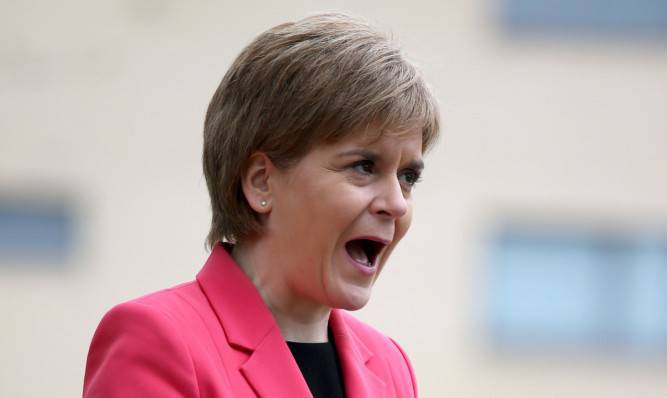Scotland’s First Minister has said China can do more to promote gender equality and women’s rights in a keynote speech in Beijing.
Nicola Sturgeon invoked Hillary Clinton’s famous “women’s rights are human rights” speech before an audience of senior women in government, academia and business.
This September will mark the 20th anniversary of the then US first lady’s address at the United Nations’ fourth world conference on women in the same city.
Amnesty International has accused the Chinese government of a crack down on human rights activists and women’s groups in recent months.
It follows the arrest and detention for more than a month of five female activists who were planning to mark International Women’s Day in March by launching a campaign against sexual harassment.
In her remarks to an audience at the Chinese People’s Association for Friendship with Foreign Countries, Ms Sturgeon said gender equality, as well as being a fundamental human rights issue, was “one of the great economic opportunities of the 21st century”.
The First Minister, who is on a trade visit to China and Hong Kong, said: “There are currently well over two billion working age women across the world. But there is virtually no country, on any continent, where women have equal economic opportunities to men.
“For virtually every nation, fully empowering women is probably the single simplest way, in which they can sustainably increase their productive potential. Gender equality can help to transform the global economy.
“I know that much of the work we do in Scotland will strike a chord here in China. Gender equality is incorporated in your constitution. Women account for 45% of your workforce. And you recognise the importance of women being fully involved in decision-making.
“But like all societies – certainly including Scotland – there is also more that China can do.
“To give just one example, women are still significantly under-represented among key decision-makers in business and in government.
“The truth is, that virtually all countries are on a journey towards true gender equality, but none have completely achieved it. We all need to learn from each other how best to make progress.”
Naomi McAuliffe, Amnesty International’s programme director in Scotland, said: “The First Minister has made a significant statement of support for equality and human rights in Beijing, and we trust that she will continue a dialogue on these issues throughout her time in China.”
